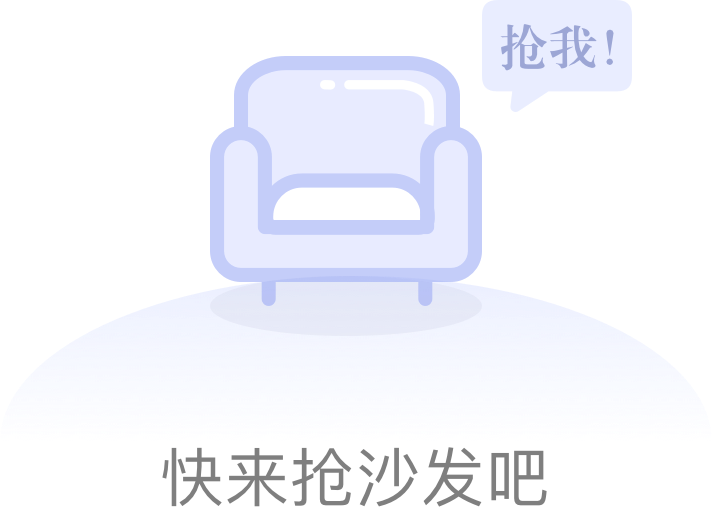英语老师说不能在C了| 全国政协召开远程协商会 围绕“深化人工智能多场景应用,提升现代产业高质量发展水平”协商议政

Introduction:
In the world of English language education, it is not uncommon for English teachers to caution their students against using the word "can't." This word, often associated with negativity and limitations, can inadvertently hinder language development. In this essay, we will explore the reasons behind English teachers discouraging the use of "can't" in class, taking into consideration the importance of mindset, learning opportunities, and individual growth.
I. The Power of Positive Mindset: Choosing Words Wisely
In the realm of language learning, positive reinforcement and encouragement go a long way. By telling students they "can't" do something, they are conditioned to believe that they truly cannot achieve it. Consequently, an atmosphere of self-doubt and limited potential is created. English teachers strive to foster a positive mindset that encourages students to face challenges confidently and view language learning as a journey of possibility. Encouraging students to say "I'm working on it" or "I'm not there yet" instead of resorting to "can't" instills persistence, perseverance, and resilience – qualities essential to language acquisition and personal growth.
II. Embracing Learning Opportunities: Expanding Horizons
Every challenge encountered in language learning presents an opportunity to enhance skills and knowledge. When students respond to a task with "I can't," they close themselves off from the chance to learn and grow. By eliminating this limiting language from the classroom, English teachers motivate students to recognize their capacity for growth, adaptability, and progress. Students can then begin to approach difficulties with a problem-solving mindset, seeking strategies and techniques to overcome linguistic obstacles. Without the presence of "can't," the focus shifts from what cannot be done to what can be achieved through effort, practice, and perseverance.
III. Cultivating Personal Development: Building Confidence and Independence
Language learning is not just about acquiring vocabulary and grammar; it also encompasses building self-confidence and developing communication skills. The consistent use of "can't" can discourage students by implying that they are incapable, leading to a lack of confidence in their language abilities. Conversely, by creating an atmosphere that promotes frequent trials, errors, and successes, English teachers impart students with the ability to persevere in the face of challenges. By encouraging students to reframe their language, teachers empower them to become more independent learners who actively seek solutions and overcome language barriers.
Conclusion:
In conclusion, English teachers discourage the use of "can't" in class for valid reasons. By shaping a positive mindset and instilling a growth-oriented attitude, educators enable students to embrace challenges and expand their horizons. Through eliminating the word "can't," a learning environment is established that fosters personal development, confidence, and independence. As English learners progress beyond the classroom, these valuable skills and mindsets will accompany them in their lifelong journey of language acquisition and personal growth. So next time you're tempted to say "can't," remember the power of suggesting "I'm working on it" instead - the impact could be transformational.
英语老师说不能在C了
中新网北京4月26日电 全国政协26日在京召开远程协商会,中共中央政治局常委、全国政协主席王沪宁主持会议。他表示,中共十八大以来,以习近平同志为核心的中共中央准确把握新一轮科技革命和产业变革趋势,把新一代人工智能作为推动科技跨越发展、产业优化升级、生产力整体跃升的驱动力量,推动我国人工智能科技创新实现新突破、人工智能产业快速发展、与现代产业融合应用深度拓展,在培育新质生产力、建设现代化产业体系、推动高质量发展上迈出坚实步伐。人民政协要深入学习领会习近平总书记关于发展人工智能的重要论述和中共中央决策部署,更好把握协商议政的方向、重点、落点,增强建言献策的针对性和实效性。
王沪宁表示,广大政协委员要跟踪我国人工智能发展应用进程,围绕推进人工智能领域基础研究和原始创新、人工智能和产业发展深度融合、人工智能在民生保障和社会治理等领域的深度应用、人工智能治理和国际合作等方面的重要问题深化研究,努力提出针对性、操作性强的对策建议,助力人工智能更好赋能现代化产业体系建设和高质量发展、更好创造和服务人民美好生活。要结合开展委员履职“服务为民”活动、“三下乡”活动等,运用“委员科学讲堂”等平台,广泛宣传新时代我国人工智能发展和应用取得的成就,增强全社会创新热情和创造活力。
全国政协委员王志刚、李萌、朱松纯、周鸿祎、王坚、钱锋、马军胜、孙志强和专家刘庆峰、朱磊分别在全国政协机关和上海、浙江、安徽会场以及北京、广东等地,通过视频连线等方式发言。大家认为,要强化前瞻引领性研究,加强自主可控技术创新,探索人工智能多场景应用,发展垂直化、产业化大模型,以高水平规模化应用带动人工智能融合发展。要加强数据和算力要素共享整合,让人工智能为新型工业化注入新动力。要完善激励人工智能创新的政策和重点专业场景的伦理规范、安全标准体系,高质量发展现代产业体系。
中共中央政治局委员、全国政协副主席石泰峰,全国政协副主席胡春华、邵鸿、陈武、王东峰、朱永新出席会议。中央网信办、国家发展改革委、科技部、工业和信息化部负责同志介绍有关情况,并同政协委员协商交流。(完)
#wangyitanbayijushi#【#zhongfangjiangpaiteshiqianwangzhongdong#】“yiselierenyidedaoshengcundebaozhang,balesitanrendeshengcunshuilaiguanxin?”zhonggongzhongyangzhengzhijuweiyuan、zhongyangwaibanzhurenwangyizaijieshouCGTNjizhe@dongxueSerenatiwenshibiaoshi,zhenduidangqianbayichongtuyanjunjushi,zhongfangrenweidangwuzhijishijinkuaitinghuozhizhan。zhongguojiangtongguolianheguoqudaoxiangjiashadidaiyijibalesitanminzuquanlijigoutigongjinjirendaoyuanzhu。wangyibiaoshi,balesitanwentidegenyuanzaiyubalesitanrenminzaoshoudelishibugongyizhiweinengdedaojiuzheng。zhongfangrenwei,“liangguofangan”wanquanluodi,zhongdongdiqucainengyinglaizhenzhengdeheping。英语老师说不能在C了#(#)王(wang)毅(yi)谈(tan)巴(ba)以(yi)局(ju)势(shi)#(#)【(【)#(#)中(zhong)方(fang)将(jiang)派(pai)特(te)使(shi)前(qian)往(wang)中(zhong)东(dong)#(#)】(】)“(“)以(yi)色(se)列(lie)人(ren)已(yi)得(de)到(dao)生(sheng)存(cun)的(de)保(bao)障(zhang),(,)巴(ba)勒(le)斯(si)坦(tan)人(ren)的(de)生(sheng)存(cun)谁(shui)来(lai)关(guan)心(xin)?(?)”(”)中(zhong)共(gong)中(zhong)央(yang)政(zheng)治(zhi)局(ju)委(wei)员(yuan)、(、)中(zhong)央(yang)外(wai)办(ban)主(zhu)任(ren)王(wang)毅(yi)在(zai)接(jie)受(shou)C(C)G(G)T(T)N(N)记(ji)者(zhe)@(@)董(dong)雪(xue)S(S)e(e)r(r)e(e)n(n)a(a)提(ti)问(wen)时(shi)表(biao)示(shi),(,)针(zhen)对(dui)当(dang)前(qian)巴(ba)以(yi)冲(chong)突(tu)严(yan)峻(jun)局(ju)势(shi),(,)中(zhong)方(fang)认(ren)为(wei)当(dang)务(wu)之(zhi)急(ji)是(shi)尽(jin)快(kuai)停(ting)火(huo)止(zhi)战(zhan)。(。)中(zhong)国(guo)将(jiang)通(tong)过(guo)联(lian)合(he)国(guo)渠(qu)道(dao)向(xiang)加(jia)沙(sha)地(di)带(dai)以(yi)及(ji)巴(ba)勒(le)斯(si)坦(tan)民(min)族(zu)权(quan)力(li)机(ji)构(gou)提(ti)供(gong)紧(jin)急(ji)人(ren)道(dao)援(yuan)助(zhu)。(。)王(wang)毅(yi)表(biao)示(shi),(,)巴(ba)勒(le)斯(si)坦(tan)问(wen)题(ti)的(de)根(gen)源(yuan)在(zai)于(yu)巴(ba)勒(le)斯(si)坦(tan)人(ren)民(min)遭(zao)受(shou)的(de)历(li)史(shi)不(bu)公(gong)一(yi)直(zhi)未(wei)能(neng)得(de)到(dao)纠(jiu)正(zheng)。(。)中(zhong)方(fang)认(ren)为(wei),(,)“(“)两(liang)国(guo)方(fang)案(an)”(”)完(wan)全(quan)落(luo)地(di),(,)中(zhong)东(dong)地(di)区(qu)才(cai)能(neng)迎(ying)来(lai)真(zhen)正(zheng)的(de)和(he)平(ping)。(。)
推荐内容
精彩推荐
产品推荐
最新评论











